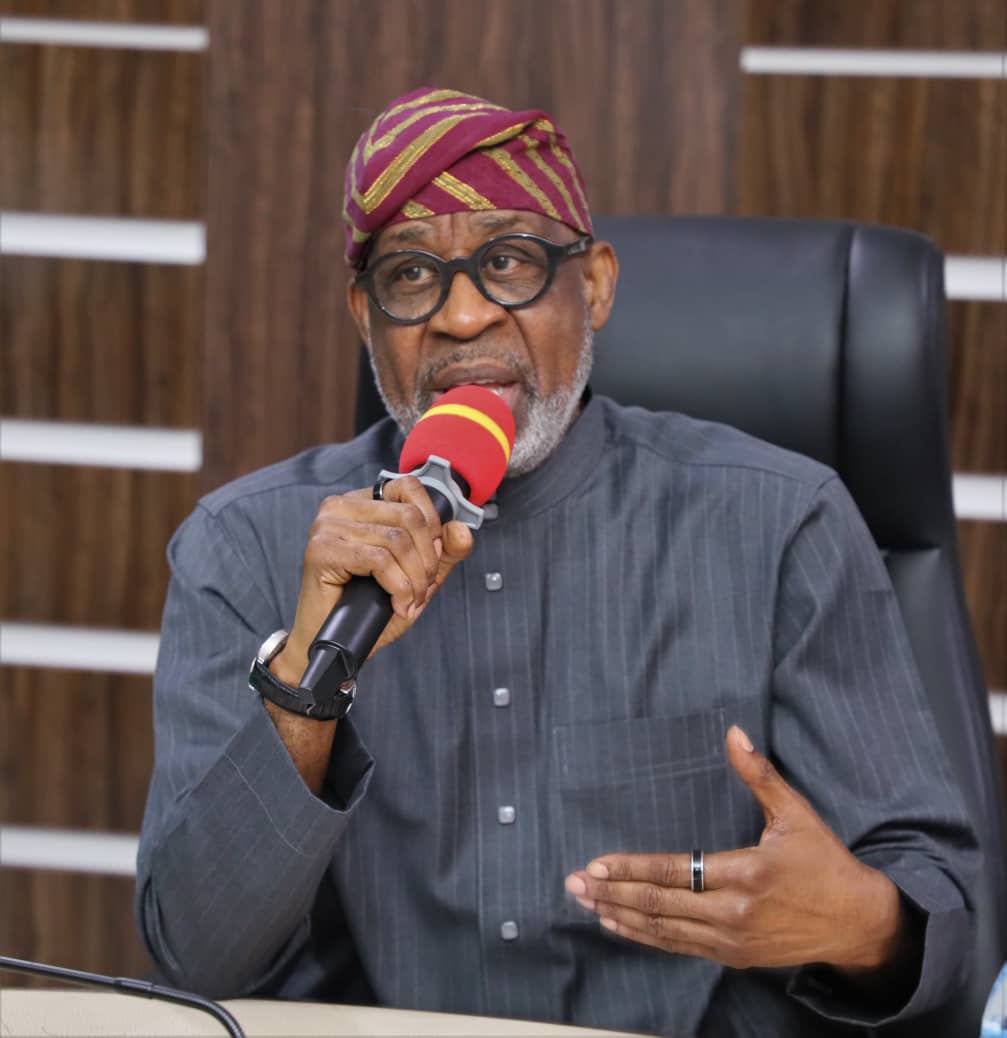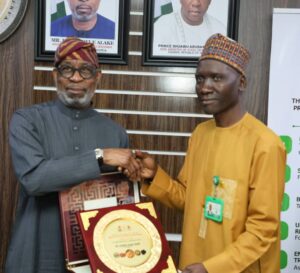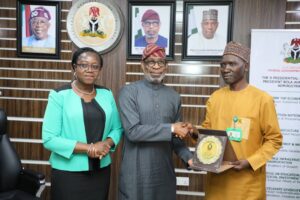Dr. Alake Urges NIPSS to focus on Driving Sustainable Development in Nigeria

The Minister of Solid Minerals Development, Dr. Dele Alake, has urged the National Institute for Policy and Strategic Studies (NIPSS) to take a central role in driving a national mindset transformation as a catalyst for sustainable development in Nigeria.
Addressing participants of NIPSS Course 47 (2025) during a courtesy visit to his office in Abuja on Wednesday, Dr. Alake emphasized that societal attitudes must evolve to strengthen governance, improve policy execution, and foster national unity.

“Development isn’t just about infrastructure or economic models; it’s rooted in the collective mindset of the people,” the Minister stated. “Unless our mental orientation aligns with our development aspirations, progress will remain inconsistent and unsustainable.”
He challenged NIPSS to transcend its traditional advisory role and become an active agent of change, capable of inspiring a national renaissance through attitudinal reorientation.
“Your mandate goes beyond writing reports. You must engineer a shift in national consciousness. If the mindset remains flawed, even the best policies will falter,” he added.
Dr. Alake pointed out that Nigeria’s many developmental blueprints have often failed at the implementation stage due to a disconnect between vision and execution. He urged NIPSS to demystify complex policies and translate them into actionable strategies that resonate with both government stakeholders and grassroots communities.
Turning to the solid minerals sector, the Minister noted that decades of neglect had allowed illegal mining to flourish. However, under the current administration of President Bola Tinubu, the Ministry has intensified enforcement and reform efforts.
He highlighted significant achievements within the past year, including the arrest of over 300 illegal miners, the ongoing prosecution of 150 individuals—many of them foreign nationals—and the recovery of 98 illegal mining sites. The establishment of a specialized unit, the Mining Marshals, has so far secured nine convictions.

In parallel with enforcement, the Ministry has adopted a non-coercive strategy to encourage compliance among artisanal miners. Over 250 mining cooperatives have been formalized, helping small-scale miners operate legally while boosting transparency and royalty revenues.
“These reforms reflect President Tinubu’s broader commitment to ending systemic waste and ensuring national resources are used sustainably,” Dr. Alake said. “They are not just technical reforms; they are philosophical shifts in how government operates and how citizens engage with the state.”
Responding on behalf of NIPSS, Dr. Musa Umar Emmanuel, mni, commended the Minister’s insights, describing them as enlightening and motivational. He said the engagement would enrich the participants’ understanding of policy implementation and national development strategies.
Dr. Umar also lauded the Ministry’s efforts toward transparency and reform, especially in aligning with Nigeria’s push for a green, diversified economy. He acknowledged the pivotal roles played by agencies like the Nigeria Geological Survey Agency (NGSA) and the Mining Cadastre Office (MCO).
The Permanent Secretary of the Ministry, Dr. Mary A. Ogbe, also called on NIPSS to take the lead in fostering a mindset transformation that will unlock Nigeria’s vast mineral potential. Drawing from the Minister’s remarks, she stressed the urgency of cultivating a national consciousness that recognizes solid minerals as strategic assets for economic transformation.
READ ALSO: Protect Our Children from Polio – Orumba South LG Chairman Urges Residents
CFSF, RDI Warn of Looming Disaster in Borno as FG Delays Alau Dam Repairs
“Nigeria is endowed with 44 solid mineral types in commercial quantities. Yet, due to underinvestment, regulatory lapses, and lack of national urgency, their potential remains largely untapped,” she said. “We need institutions like NIPSS to help shift the narrative—from neglect to necessity.”
Dr. Ogbe concluded by expressing confidence in NIPSS’s capacity to spark the necessary change in attitudes, helping reposition the solid minerals sector as a driver of industrialization, job creation, and national prosperity.





